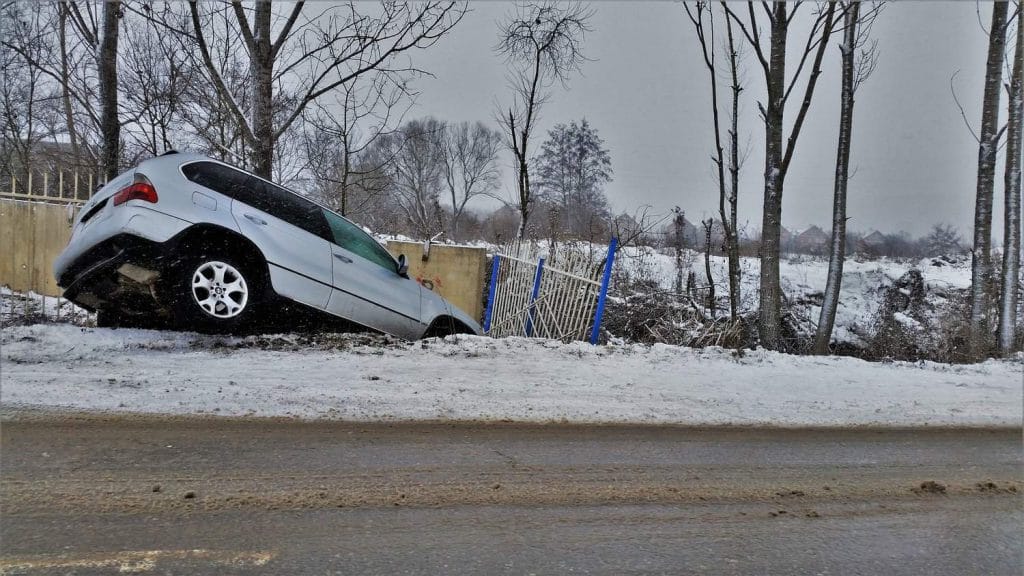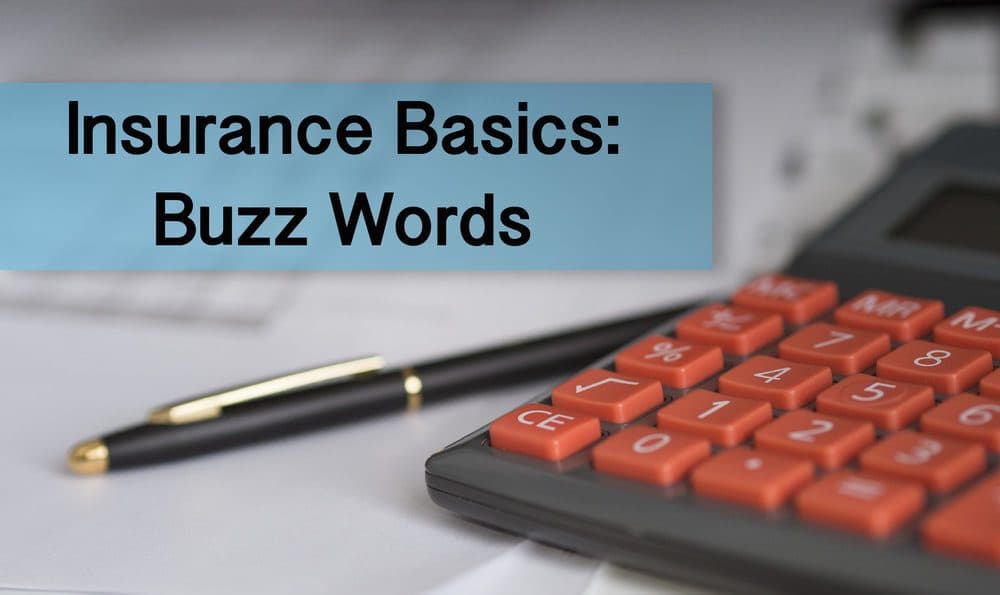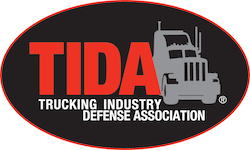Whether you’re a seasoned pro or nervous rookie in the insurance world, it’s important to stay up to date with the lingo. Not only will it help you understand your coverage better, but there’s nothing more stressful than exchanging a blank stare with someone at an industry happy hour because you were stuck trying to remember what an “exclusion” included. Thanks to our friends at CoverWallet, this list will help you stay on top of your game and ask better questions if you do run into unfamiliar territory.
Acts of War and God
This is a catch-all phrase that companies use to describe what events may or may not be covered in your plan. If it’s the first time you’re seeing these words, it can sound pretty aggressive, but they actually mean exactly what they sound like.
Acts of God implies natural disasters that were not explicitly stated in your insurance policy (i.e: a tornado). Additional natural disaster coverage can be purchased, but it’s important to understand your geography to make sure it’s covered. Typical exclusions include flood and earthquake damage.
Acts of War include incidents that could happen on the basis of, well, war. If you elect not to purchase terrorism coverage and a plane crashes into your business as part of an act of terrorism, that will not be paid out.
Actual Cash Value (ACV)
This is the price assigned to help replace damaged property. It is NOT the actual value of the original item as it includes depreciation. To help determine this number, check out Kelley Blue Book for cars or do some trusty research online.

Adjuster
When it comes time for you to make claims on your insurance policy, an adjuster will be around to help settle those claims. You want to be good friends with these guys or gals.
Agent
This is the person you will be dealing with the most when discussing and negotiating your policy coverage. They are employees of the insurance company and are responsible for selling and maintaining contracts. You want to direct all of your questions here.
Business Interruption
Let’s say you’re having a good ‘ol time with your business. Employees are happy, customers, are smiling, and flow of income is the best you’ve ever seen. Then, the unthinkable occurs. A fire, hurricane, natural disaster, or other “covered event” occurs. Your business halts operations while you recuperate, but bills still need to be paid.
According to CoverWallet, “The business would still be required to pay salaries, rent, and all bills associated with the property and business operations. With Business Interruption Insurance any covered circumstance would be reimbursable.”


Make sure you have insurance to get you through unforeseen events that could halt your business.
Bodily Injury vs Personal Injury
If you are involved in an accident:
Bodily Injury will cover injuries and damage to the other person(s) involved in the accident. This can include their medical fees, compensation for missed work, and legal defense fees if they decide to sue you for further damages. Bodily injury does not cover any of your own expenses.
Personal Injury from a legal standpoint will cover “hospital, medical, and funeral expenses for you, your passengers, and/or any pedestrians you hit,” according to Ashmore Law Firm. From an insurance standpoint, personal injury covers slander and libel if someone’s reputation has been damaged from false statements.
These are two key insurance components if you have a business that has a company car or employees that drive as part of their job. This will help you determine what you need in terms of commercial auto insurance.


This is what could happen if you’re texting and driving. Stay safe out there!
Deductible
This what you have to pay out-of-pocket per insurance claim before coverage kicks in. For example, if you get into a car accident that will cost $1000 to repair, your coverage may state that you have to pay the first $200 on that before they can cover the rest.
This is different from your premium, which is just your annual cost to have coverage. Premiums and deductibles are inversely related: the more your premium, the less your deductible, and vice versa.
Depreciation
As soon as you purchase an item and take it home, it is no longer worth its original tag price. The product is now tainted by your touch and resell value will always fall below retail price. This is also known as depreciation.
CoverWallet explains: “As newer and better products come along, the older item becomes outdated and loses its value. While there are some things such as fine art that can appreciate value over time, most everything else will almost always depreciate and drop in worth.
Every item is different. A car, for example, can lose up to 15% of it’s value the second it leaves the showroom. An item usually experiences 50-60% depreciation over 4-5 years.”
Electronics depreciate as soon as you take it out of the store. You can help preserve the value of your product by taking care of it and keeping the original packaging and manuals.
Endorsement
If you have an insurance policy that might be missing a thing or two, you can request an endorsement. This is for add-on coverage that clarifies or amends the original policy.
Errors and Omissions (E&O)
Let’s face it: we are all human and we make mistakes. If you or one of your employees ever err in a task for your client, you could be held responsible for any consequential results of that mistake. This type of insurance helps cover those damages.
One common claim in this policy is retroactive claims. This is important if you want to cover yourself in an expired contract or for work done within the company before you joined at an executive level. For example, if you are the new CEO of a company and an old client sues you for improper work done before you joined, this type of insurance claim can help.
Exclusion
These are things that are NOT included in your policy for whatever reason. Be sure to know and understand what falls into this category.
“An exclusion can happen for a variety of reasons. One reason is that a separate insurance policy may already cover a risk, thus the purpose of that exclusion would be to eliminate an already covered risk,” says CoverWallet.
Insured
That’s you! You are the insured! Even if you’re reading this as an insurance agent, we’re pretty sure you have insurance on something.
Insurer
These are the people providing you insurance. Isn’t that neat? Our top go-to’s: CoverWallet, Atain, Liberty Mutual, CNA, Guard, and USLI.


Loss
When you experience loss, you file a claim. Injuries, accidents, and generally unfortunate events fall here.
Marine: Ocean Marine vs. Inland Marine
Ocean Marine is one of the oldest insurance types offered. Property Casualty 360 says it best: “Ocean Marine coverage primarily includes coverage for the vessel or hull of a ship; the cargo; the freight revenue to be received by the ship’s owner; and legal liability for any negligence by the shipper or the carrier.”
Inland Marine is meant to protect goods after they have left the water and get transported on land. For example, if you are shipping goods from international waters, it’s very likely that your goods don’t just sit at the port upon arrival. It probably gets shipped once again via plane, train, truck, or any other method of transportation. Inland Marine covers the second half of the trip if anything were to go wrong. In addition, heavy equipment such as bulldozers, Bobcats, and tools for contractors are covered.
Policy Limits
Every policy has a limit. This just means that at some point you hit a limit of how much damage you can claim and the rest comes from out-of-pocket. It would be nice if unlimited coverage existed, though…
Premium
This a fancy word for “what you pay for your insurance policy.”








Great article to help explain the insurance lingo.